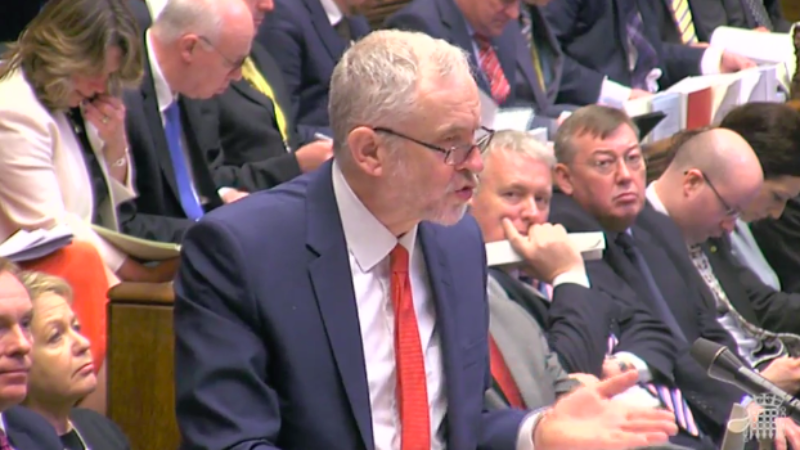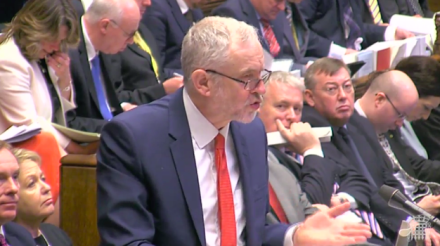

Jeremy Corbyn was joined by 46 other Labour MPs in opposing the renewal of four submarines for the Trident nuclear weapons system last night, as the Commons voted 427 to 117 in favour of the proposal.
Labour MPs were granted a “free vote” on the subject, but with 140 supporting the Government motion, it is still being seen as the biggest show of defiance by backbenchers in a Commons vote under Corbyn.
While both Clive Lewis, the Shadow Defence Secretary, and Emily Thornberry, the Shadow Foreign Secretary, were among the 40 Labour MPs to abstain, Corbyn came under public criticism in the chamber for how he had decided to vote, which many claimed went against Labour’s own policy on the issue. Those close to Corbyn say the policy is “under review”. It is believed around eight Shadow Cabinet ministers abstained.
Opening the debate, Corbyn, a lifelong nuclear unilateralist, said that it was time for Britain “to step up to the plate and promote, rapidly, nuclear disarmament”.
“I would not take a decision that kills millions of innocent people,” he said. “I do not believe the threat of mass murder is a legitimate way to go about international relations.”
But during the debate, Corbyn faced awkward interventions from the benches behind him. Former shadow Defence minister Kevan Jones hit out at the Labour leader for failing to back party policy. When Corbyn replied that Jones “is well aware what the policy was”, some backbenchers heckled back: “what the policy is”.
Jamie Reed, the MP for Copeland, was among the most vocal critics of Corbyn during the debate, describing the Labour’s leader of acting in “reckless, juvenile, narcissistic irresponsibility”. He said:
“For the first time I think ever we have witnessed the leader of the Labour party stand up at the despatch box of this House and argue against the policy of the party that he leads. This is unprecedented. Moreover this reckless, juvenile, narcissistic irresponsibility makes me fearful of the party that I love. The sheer stupidity of this approach should be dragged out into the light and seen for what it is, because no only is renewal Labour Party policy, it is the settled will of the country, and every parliamentary decision relating to it will have been taken by 2020”.




More from LabourList
Almost half of Labour members oppose plans to restrict jury trials, poll finds
‘How Labour can finally fix Britain’s 5G problem’
‘The University of the Air – celebrating 60 years of Harold Wilson and Jennie Lee’s vision’